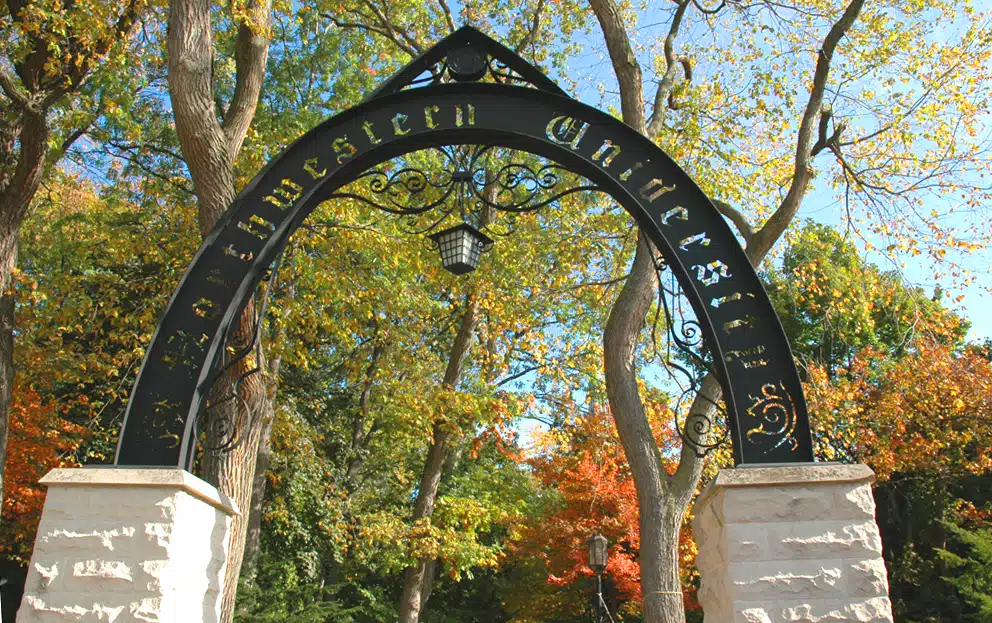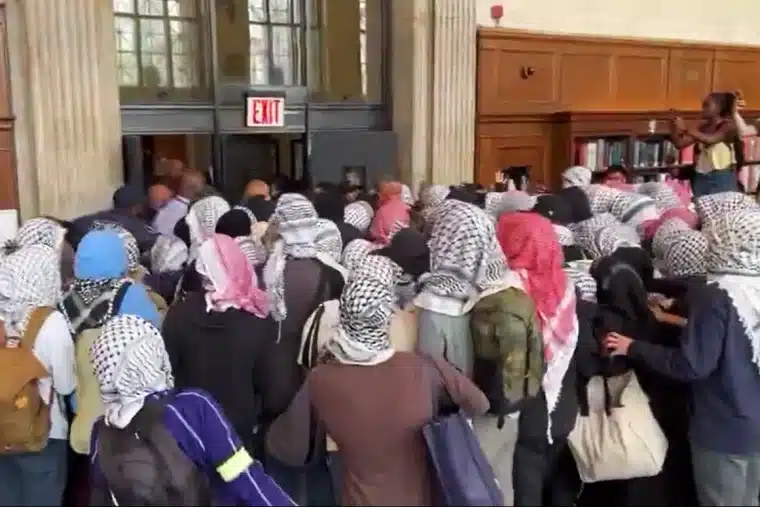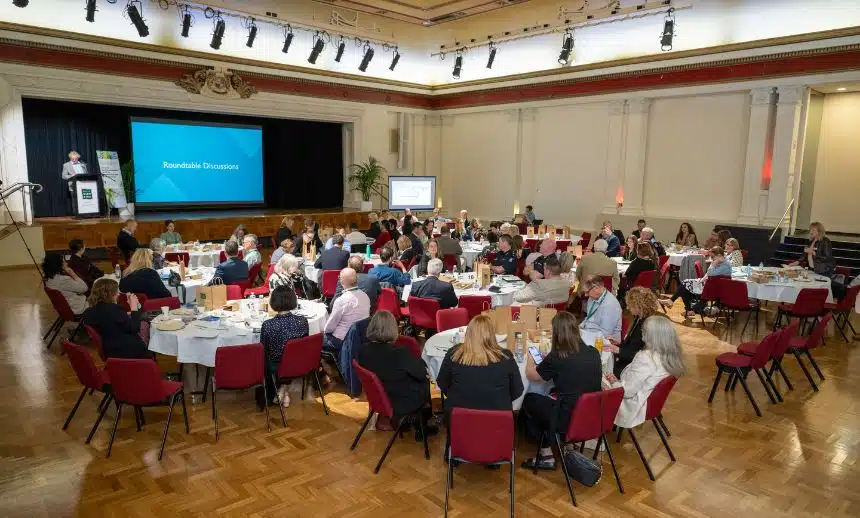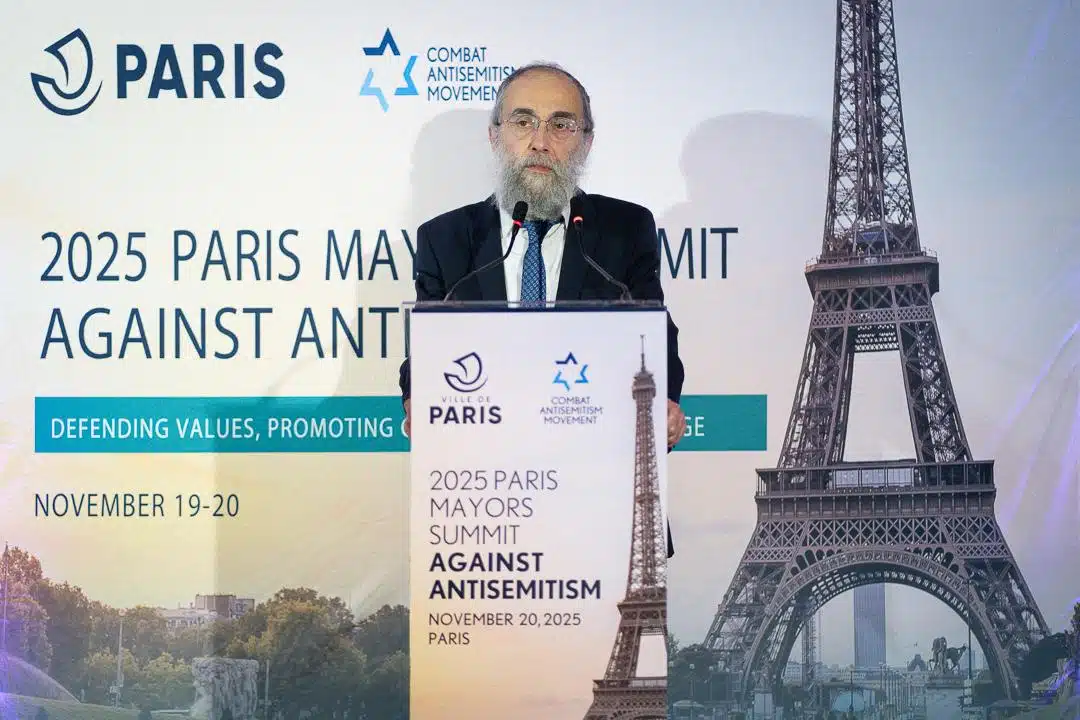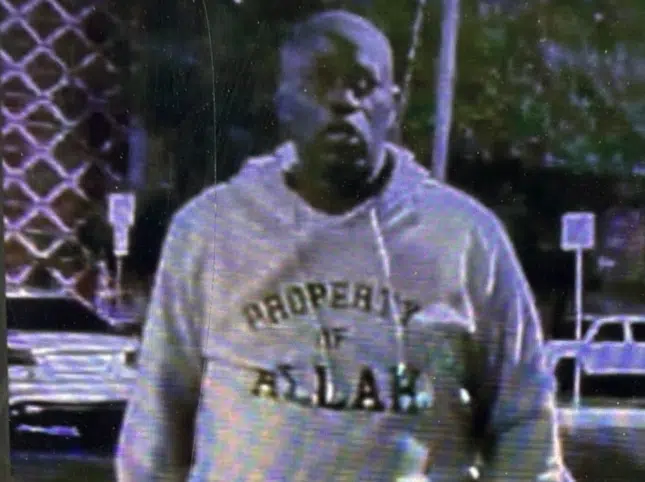
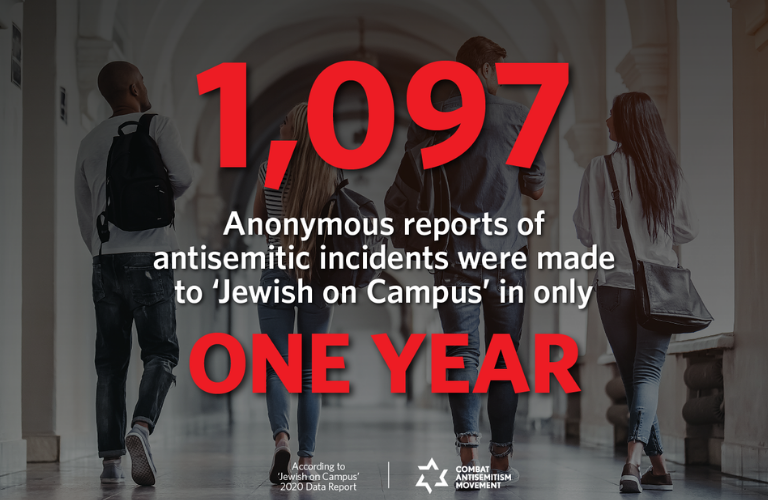
Student-Led Group Details More Than 1,000 Antisemitic Incidents on College Campuses Across U.S. in 2020
Last month, the Jewish on Campus (JOC) advocacy group released its 2020 Data Report, detailing 1,097 anonymous submissions of antisemitic incidents at colleges across the U.S. last year.
Schools with over 15 reported antisemitic incidents included — New York University (30); George Washington University (25); Cornell University (24); DePaul University (24); Rutgers University (20); Tufts University (19); George Mason University (19), Columbia University (17); and University of Oregon (16).
The incidents were classified as follows — Historical Antisemitism (48%); Bullying (31%); Demonization of Israel (22%); Denigration (20%); Discrimination (18%); Genocide Expression (15%); Denying Jews Self-Determination (9%); and Destruction of Jewish Property (5%).
The full report can be read here.
The student-led JOC is a non-profit organization that began as an Instagram page collecting anonymous stories of antisemitic incidents experienced by students.
As JOC co-founder Isaac de Castro told the Combat Antisemitism Movement (CAM) in the past, the group’s goal was to “[expose] this worldwide epidemic festering in our academic institutions.”
Students submit reports of antisemitic incidents via a form on the JOC website, and the stories are then posted on Instagram for all to see.
In just one year, JOC has amassed more than 30,000 Instagram followers.
“We need to be able to put down these invisible walls that are being put up around us, especially Jewish students,” De Castro said. “This oppression will never be broken down unless we are able to speak out and keep moving forward.”
An example of a story posted by Jewish on Campus, from George Washington University, follows:
“I was in office hours with a professor when the subject of antisemitism came up. He told me antisemitism was not real because all oppression has a class component and since ‘Jews are all rich and powerful’ they can only be the oppressors. This conversation took place less than two weeks after the Pittsburgh Synagogue Shooting, and he said that was not even valid evidence of antisemitism. I reported this to the school and nothing was ever done about it.”
From Rutgers University:
“Every year for Yom Hashoah, the fraternity reads the names of Holocaust victims for 24 hours straight. On the night of April 7th, eggs were thrown at the house during the name reading, That such an event happened during a sacred time of remembrance and visible mourning makes it clear that this was an act of ignorance and that antisemitism is a very real issue on campus.”
From New York University:
“In my first two years at school, we had academic departments boycott the Tel Aviv campus, two students were arrested – one for burning an Israeli flag and the other for assauling one of my friends while she sang Ha’Tikvah at a Yom Ha’atzmaut celebration, numerous antisemitic and anti-Israel resolutions passed in Student Government, and even the temporary closure of our Hillel due to death threats against Zionists by another student. All of this and no repercussions from the school. In fact, that year SJP won an award for having the most positive impact on our campus. I wish I could count all of the times professors had made antisemitic comments to my face in class or a friend used common and hurtful tropes against me, despite my explaining why it is wrong.”
Jewish college students are on the frontlines of the battle against contemporary antisemitism, which is often disguised as anti-Zionism, and thankfully there are groups such as Jewish on Campus highlighting the challenges these students are facing on a daily basis.

